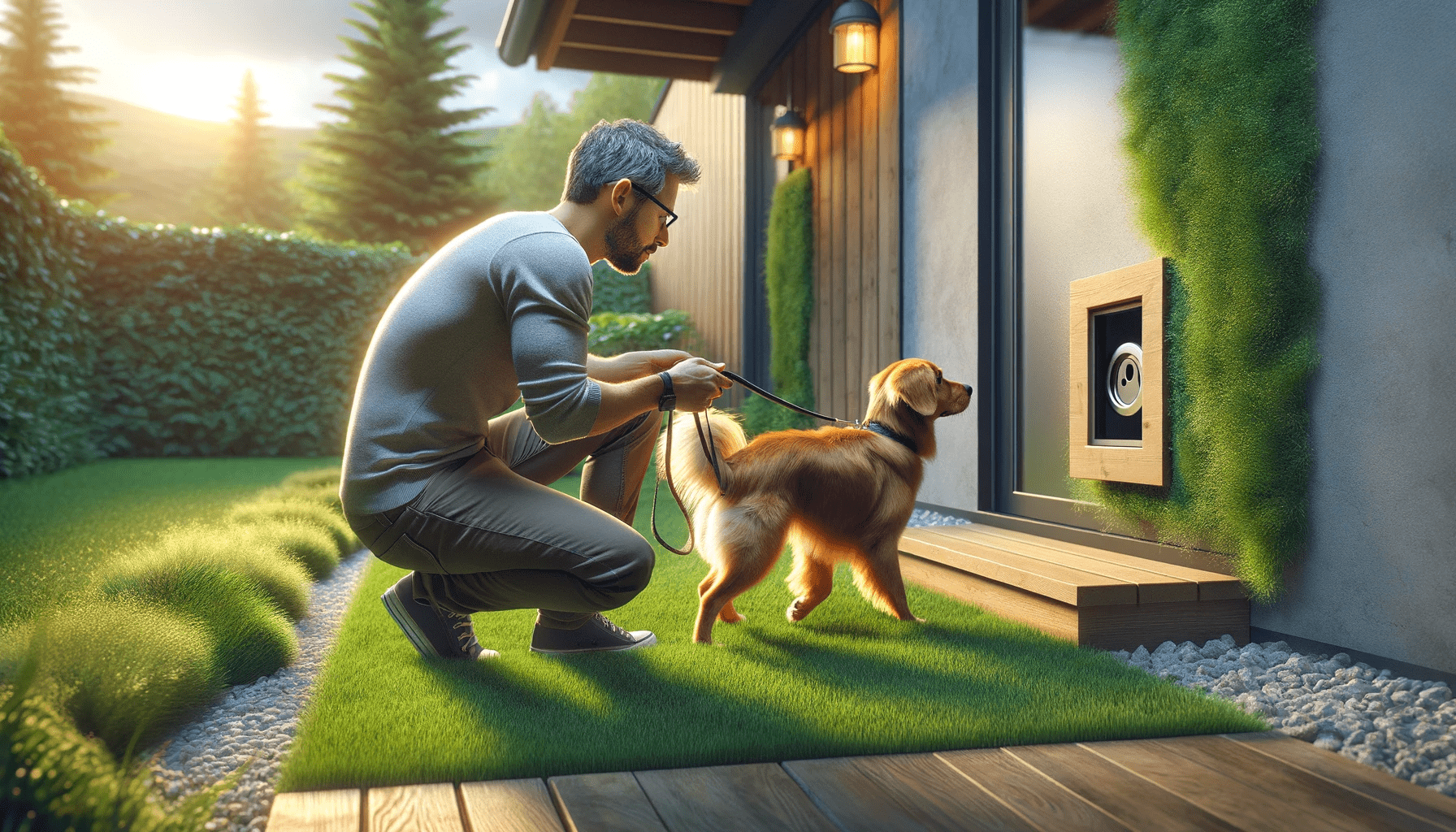Do you have a rescue dog? If so, socialization training is crucial for their development. By exposing them to different environments, people, and other dogs, you can help them overcome behavioral issues and build confidence.
Socialization training also creates positive experiences and helps them adapt to new situations. In this article, we will explore why socialization training is important for rescue dogs and how it can benefit their overall well-being.
Key Takeaways
- Socialization training improves communication and adaptability in rescue dogs.
- Training helps address behavioral issues caused by neglect, abuse, or abandonment.
- Building confidence and trust in rescue dogs takes time and patience.
- Socializing rescue dogs with other dogs creates positive experiences and improves overall well-being.
The Benefits of Socialization Training
To understand the importance of socialization training for rescue dogs, it's crucial that you recognize the benefits it brings to their overall well-being and successful integration into a new home.
Socialization training plays a vital role in improving communication between rescue dogs and their new owners. By exposing them to various environments, people, and other animals, it helps them become more comfortable and adaptable in different situations. This training allows them to develop better social skills, making it easier for them to interact with humans and other dogs.
Furthermore, socialization training also helps in reducing anxiety in rescue dogs. Many of these dogs have experienced trauma or neglect in their past, leading to fear and anxiety. Proper socialization helps them build confidence and teaches them how to cope with new experiences. By gradually exposing them to different stimuli, such as loud noises or unfamiliar objects, their anxiety levels can decrease over time.
Overcoming Behavioral Issues Through Training
By addressing behavioral issues through training, you can help rescue dogs overcome their past traumas and develop healthier behaviors. Behavioral rehabilitation is a crucial aspect of the rescue dog's journey towards a better life.
Many rescue dogs may have experienced neglect, abuse, or abandonment, which can lead to various behavioral issues such as aggression, fear, or separation anxiety. However, with effective training techniques, these issues can be overcome, allowing the dogs to thrive in their new homes.
One of the most important aspects of behavioral rehabilitation is positive reinforcement training. This technique focuses on rewarding desired behaviors rather than punishing unwanted ones. By rewarding the dog for exhibiting good behavior, such as sitting or staying calm, they'll gradually learn to associate positive outcomes with these actions. This helps to build their confidence and trust in humans.
Another effective training technique is desensitization and counterconditioning. This involves gradually exposing the dog to the triggers or situations that cause fear or anxiety, and pairing them with positive experiences. For example, if a dog is afraid of strangers, they can be gradually introduced to new people while receiving treats or praise. Over time, the dog learns to associate strangers with positive experiences, reducing their fear response.
Consistency and patience are key when training rescue dogs with behavioral issues. It's important to set clear boundaries, establish routines, and provide a safe and structured environment. Professional trainers or behaviorists can also offer guidance and support throughout the training process.
Building Confidence and Trust in Rescue Dogs
As a rescue dog owner, you can build confidence and trust in your furry companion through socialization training. Building trust is crucial for rescue dogs as they may have experienced trauma or neglect in their past. By providing them with a safe and positive environment, you can help them overcome their anxieties and fears.
One way to build trust is by slowly introducing your dog to new experiences and environments. This can be done through controlled exposure to different people, animals, and places. Start with low-stress situations and gradually increase the level of difficulty as your dog becomes more comfortable. This will help them understand that new experiences can be positive and not something to be afraid of.
Reducing anxiety is another important aspect of building trust. Rescue dogs may have heightened anxiety due to their past experiences. Providing them with a consistent routine, a quiet space to retreat to, and positive reinforcement can help alleviate their anxiety. It's important to be patient and understanding as it may take time for your dog to fully trust you and their new surroundings.
Creating Positive Experiences With Other Dogs
Create positive experiences with other dogs to help your rescue dog develop healthy social skills. Dog socialization is crucial for their overall well-being and behavior. When a rescue dog has had limited interactions with other dogs, it can lead to fear, anxiety, and aggression. By gradually introducing your dog to other dogs in a controlled and positive environment, you can help them overcome these challenges.
Start by finding well-behaved and friendly dogs to socialize with. Choose dogs that are known to have good social skills and are tolerant of other dogs. Begin with short, supervised interactions, gradually increasing the duration and intensity as your dog becomes more comfortable.
Positive reinforcement is key during these interactions. Reward your dog for calm and friendly behavior, using treats, praise, and playtime. This will help them associate positive experiences with other dogs and reinforce desirable behavior.
Observe your dog's body language during interactions. Look for signs of stress or discomfort, such as a tense body, tucked tail, or growling. If you notice these signs, remove your dog from the situation and try again at a slower pace.
Regular socialization with other dogs will help your rescue dog develop confidence, improve their communication skills, and reduce anxiety. It's an essential part of their overall training and well-being.
Helping Rescue Dogs Adapt to New Environments
To help your rescue dog adapt to new environments, gradually expose them to different surroundings and provide positive reinforcement for their calm behavior. New surroundings can be overwhelming for rescue dogs, especially those who've experienced trauma or neglect in the past. It's important to introduce them to unfamiliar situations in a controlled and gentle manner, allowing them to become comfortable at their own pace.
When introducing your rescue dog to a new environment, start with a quiet and secure area where they can feel safe. Allow them to explore the space at their own pace, encouraging them with treats or praise when they display calm behavior. Gradually increase the level of exposure by introducing them to different sounds, smells, and sights.
Remember to be patient and understanding during this process. Some rescue dogs may take longer to adjust to new surroundings than others. It's important to provide a consistent routine and establish a sense of security for them. Avoid overwhelming them with too many new experiences at once, as this can cause anxiety and stress.
Frequently Asked Questions
What Are the Most Common Behavioral Issues That Rescue Dogs Face?
Rescue dogs often struggle with common behavioral issues such as fear, anxiety, aggression, and separation anxiety. Socialization training is crucial for them to learn appropriate behavior and build confidence in new situations.
How Long Does It Usually Take for a Rescue Dog to Overcome Their Behavioral Issues Through Socialization Training?
Socialization training is crucial for rescue dogs to overcome behavioral issues. The timeline for each dog varies, as it depends on their specific challenges. However, with consistent training and patience, most rescue dogs can make significant progress.
Can Rescue Dogs With Severe Behavioral Problems Still Benefit From Socialization Training?
Yes, rescue dogs with severe behavioral problems can still benefit from socialization training. While it may take longer, this type of rehabilitation can provide them with the skills they need to overcome their issues. Alternative training methods can also be helpful.
Is It Necessary to Hire a Professional Trainer for Socialization Training, or Can It Be Done at Home?
You can choose to do socialization training at home, but hiring a professional trainer can provide numerous benefits. They have the expertise to address behavioral issues effectively and can create a structured environment for your rescue dog's socialization.
Are There Any Specific Techniques or Strategies That Are Particularly Effective for Helping Rescue Dogs Adapt to New Environments?
To help rescue dogs adapt to new environments, use techniques like gradual exposure, positive reinforcement, and desensitization. Introduce them to other pets slowly, giving them time to adjust and rewarding good behavior.
Conclusion
In conclusion, socialization training is crucial for rescue dogs. It helps them overcome behavioral issues, build confidence and trust, and adapt to new environments.
By providing them with positive experiences with other dogs and teaching them important social skills, we can improve their overall well-being and increase their chances of finding a loving forever home.
Socialization training is a valuable tool that can greatly benefit rescue dogs. It gives them the opportunity to live happy, fulfilling lives.






